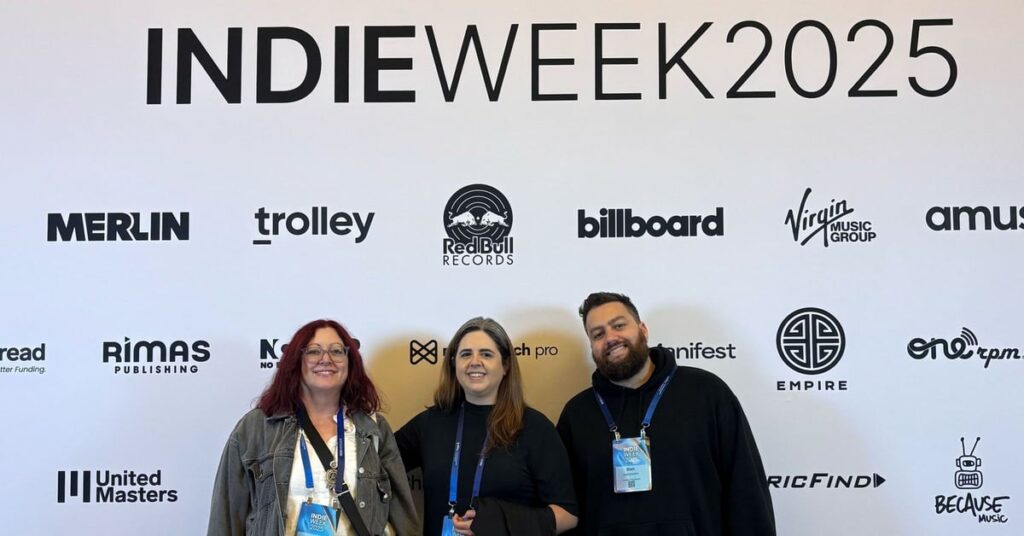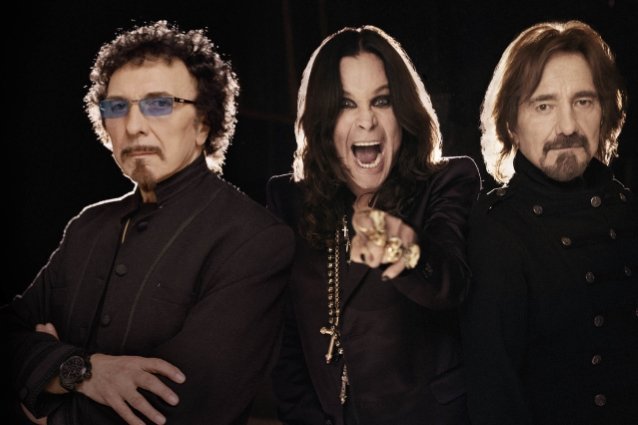How America’s Flop ‘Alibi’ Album Hinted at Major Success to Come

Fueled by a string of hits that included “Horse with No Name,” “Ventura Highway,” and “Sister Golden Hair,” America enjoyed a five-year streak of gold and platinum albums in the ’70s.
But as the decade wound down and yielded to the dawn of the ’80s, the group’s commercial fortunes suffered a sudden, steep decline, and when they entered the studio to record their ninth album, they found themselves at a career crossroads.
As is often the case when the hits start to dry up, changing trends were part of the problem. Although soft rock hadn’t lost its grip on the charts, America’s acoustic guitars and harmonies started to sound antiquated in comparison to the increasingly layered, technology-driven songs reaching the airwaves.
It also didn’t help that they lost one of their creative principals when co-founding member Dan Peek left following 1977’s Harbor LP, reducing the longtime trio to a duo.
“What… really started out as a friendship based sort of thing, then we became business partners and then it became very cut-throat, very competitive. The business really began to intervene in our personal relationships,” Peek later told Gary James. “I liken it to puppies fighting over a tit on a mother dog. There were the three of us. We were young. We were hungry. We each wanted to be ‘the one,’ the guy who had the hit single on that record. It meant a lot ego-wise, money-wise, to be the guy who wrote the song and not just the song, but to have the first single out of the box.”
Read More: How America’s ‘A Horse with No Name’ Escaped ‘Novelty’ Status
Although Harbor failed to reach gold or platinum status, it still peaked at No. 21. With America now led by Gerry Beckley and Dewey Bunnell, the band’s next effort — 1979’s Silent Letter — rose no higher than No. 110, suggesting they’d need to make some major changes if they wanted to remain commercially relevant.
Naturally, after working for years to reach the top, Beckley and Bunnell weren’t overly excited by the prospect of starting over.
Pointing out that he’d toured with Brinsley Schwarz, the band that served as an early launchpad for Nick Lowe and Ian Gomm, Beckley expressed bemused disappointment in a 1979 interview with the AP at the way those artists were embraced by younger New Wave enthusiasts while he and Bunnell were regarded as relics of the past.
“Those guys are New Wave, but they’re in their mid-30s,” sighed Bunnell. “I just feel like we’re being alienated on some level by the New Wave trips because we’re not kids on the Strip, when those guys aren’t either. Brinsley and all those guys, they were hippies!”
Silent Letter wasn’t heard by many record buyers, but those who did tune in heard the beginnings of a stylistic shift for America, with a slicker sound and more of an emphasis on nominally harder-edged material.
Although it didn’t pay off right away, it was definitely a sign — or, more appropriately for the band known for titling many of its albums with words starting with the letter H, a harbinger — of things to come.
“We’re leaning into more uptempo stuff, that’s as far as it’s going,” Bunnell promised. “We’re not going to rock-’em, sock-’em. We really couldn’t do that. We’d alienate the people that have gathered toward us. But we definitely want to adapt a little more. I mean, you have to change to survive.”
Those changes continued with the dismissal of producer George Martin, who’d been behind the boards for each America LP since 1974’s Holiday. Looking for new ways to further shake up their sound, Beckley and Bunnell turned to Matthew McCauley and Fred Mollin, the production duo behind soft rocker Dan Hill’s 1977 LP Longer Fuse, which contained the No. 3 hit “Sometimes When We Touch.”
The duo’s most significant switch, however, may have been their decision to move away from their backing band — who’d been their in-studio accompaniment as recently as Silent Letter — in favor of a small army of session players.
Beckley and Bunnell were hardly alone in their willingness to go in this direction. The late ’70s and early ’80s marked the beginning of a tremendously busy decade and change for the industry’s best studio ringers, many of whom were Los Angeles-based and worked frequently with era-defining producers such as David Foster, Ron Nevison, and Michael Omartian.
Quite a few of those names popped up during the sessions for what became 1980’s Alibi album, including guitarists Dean Parks (Steely Dan) and Steve Lukather (Toto), bassist Leland Sklar (Phil Collins), and drummer Michael Baird (Hall & Oates).
Another ’80s trend indulged during the Alibi sessions was an increased willingness to solicit outside material. While eight of the album’s 11 tracks were penned by Beckley and/or Bunnell, the remaining three — Russ Ballard’s “I Don’t Believe in Miracles,” the John Batdorf/Sue Sheridan co-write “You Could’ve Been the One,” and a cover of the then-recent Pages single “I Do Believe in You” — rounded out the track listing.
All these changes didn’t necessarily alleviate concerns at the band’s label. Jumping ship from their longtime home at Warner Bros. following the Harbor LP, America ended up at Capitol just in time to start their severe sales skid, and after hearing the Alibi tapes, execs argued in favor of a track listing that Beckley and Bunnell disagreed with.
With the record’s August 15, 1980 release date looming and no resolution in sight, they agreed to simply forego the traditional Side One and Side Two markers in favor of “Our Side” and “Their Side.” Still, even with all that upheaval mingling with a certain amount of band/label tension, the duo expressed optimism regarding the final product.
“I feel really good about Alibi,” Bunnell told the Huntington Daily News. “I think it will be another milestone in our career… We think our music is more approachable to more people than at any other time during our career.”
Those words proved poignantly off target after Alibi arrived in stores. In a telling indication of its lack of faith in the Beckley/Bunnell material, the label chose “You Could’ve Been the One” for the first of three singles from the record, all of which failed to chart in the United States. (The final single, “Survival,” peaked at No. 2 in Italy.)
Setting that aside, however, the critical response to the record illustrated just how difficult it would have been for America to have a hit with the LP regardless of how it was rolled out; for example, Warren Gerds of the Green Bay Press-Gazette shrugged that it “Seems calculated to please girls and young women,” while Ron Gluckman of the Ukiah Daily Journal offered a typically backhanded response, saying that while Alibi was “not nearly great,” it still offered “the best material Beckley and Bunnell have written since at least their second album.”
It probably also didn’t help that the cover art, while definitely distinctive, was easily interpreted as further evidence of America’s identity crisis. Rather than depicting the band members, it presented a shot of a doll’s head, arranged using forced perspective that made it look enormous.
Shot by famed photographer Henry Diltz, it seemed calculated to make a quick impression without reflecting the record’s musical contents. Ultimately, Alibi went down as another chart whiff for America, peaking at a dispiriting No. 142. The record’s commercial failure provoked questions of whether the band had a future on the airwaves, which the duo tried to face honestly.
“The important thing for us is to be honest to ourselves, musically,” Beckley told the Fort Lauderdale News. “It’s better for us to be true to ourselves than to jump around and try to get in on whatever is supposedly happening. That way when tastes do get back around closer to us, we’ll be right there on the money with it.”
That attitude paid dividends sooner than Beckley — or anyone else — might have suspected. For their follow-up album, 1982’s View from the Ground, America used basically the same formula they’d adopted for Alibi, reuniting with not only McCauley and Mollin, but many of the same session players they’d hired for that LP — including Ballard, who contributed the leadoff track, “You Can Do Magic,” which gave them their first Top Ten single since “Sister Golden Hair” went to No. 1 in 1975.
It wouldn’t be enough to set off another string of gold and platinum records, but it proved that the band was more than just a relic of the ’70s, and offered an early indication of the enduring goodwill that kept them busy in the studio and on the road for decades to come.
Top 50 American Bands
Gallery Credit: UCR Staff
Link to the source article – https://ultimateclassicrock.com/america-band-career-low/
-
Ibanez PCBE12MHOPN 4-String Acoustic Bass Guitar$279,99 Buy product
-
KOMATSU HORN 12V H-TONE 3EB55A5910A$35,00 Buy product
-
Yamaha Stage Custom Birch 5-Piece Shell Pack Drum Set (SBP2F50CLW)$799,99 Buy product
-
JBL LSR310S 10″ Powered Studio Subwoofer (Renewed)$349,00 Buy product
-
John Packer JP176 Eb Soprano Cornet$0,00 Buy product
-
Ktaxon A Style Mandolin Instrument Kit, 8 Strings Acoustic Mahogany Wood Mandolins Musical with Tuner, Thickened Gig Bag, Shoulder Strap, Picks for Beginners (Red Sunburst)$59,99 Buy product












Responses